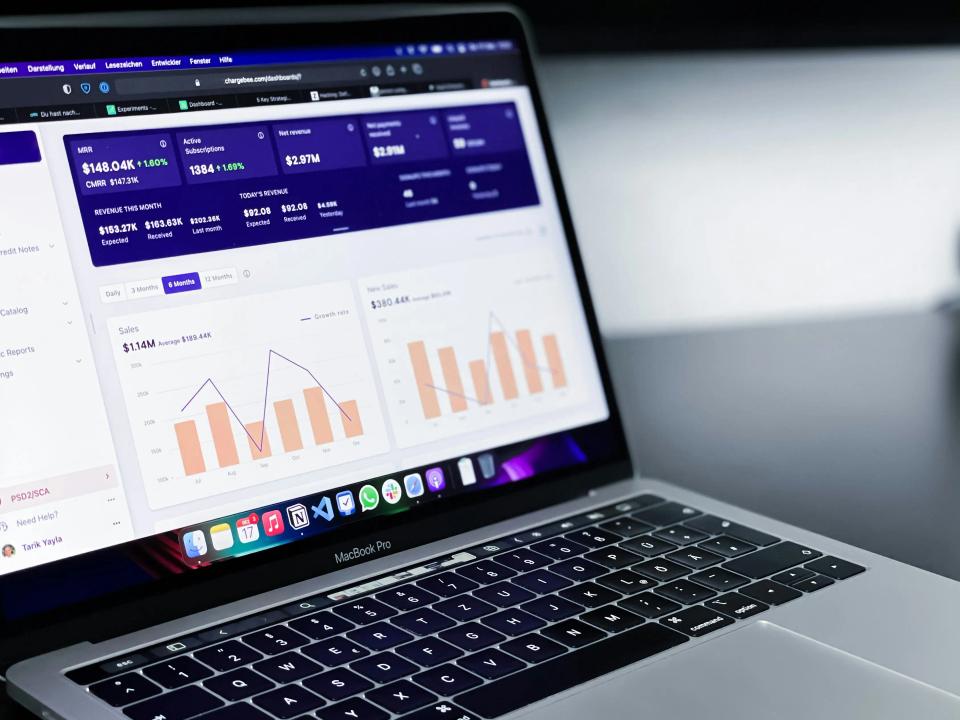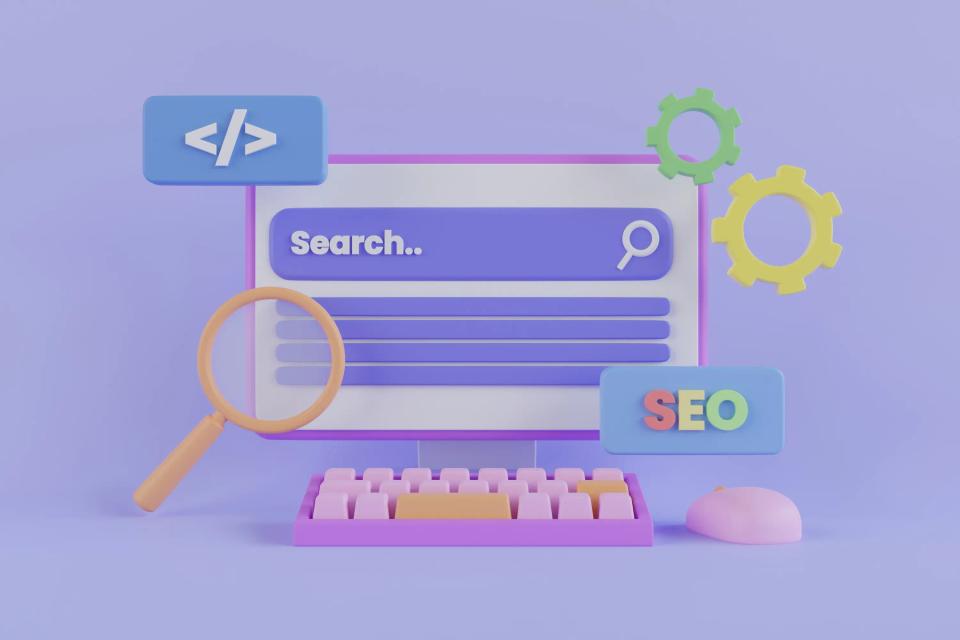Tired of drowning in spreadsheets? Do complex technical SEO audits leave you feeling overwhelmed, like you're searching for a needle in a digital haystack? You know these audits are vital for your website's survival and success, but the sheer time and effort involved can be crippling.
The old ways just don't cut it anymore. Traditional technical SEO audits are slow, agonizingly manual, and dangerously prone to human error. With websites growing larger and more complex by the day, how can you possibly keep up, let alone get ahead?
But what if there was a better way? Imagine slashing audit times, pinpointing critical issues with laser accuracy, and getting clear, actionable insights to supercharge your website. This isn't a far-fetched dream; it's the reality of ai automation technical seo audits. This post will pull back the curtain, showing you exactly how AI is revolutionizing this crucial process, the incredible benefits it offers, where it shines brightest, and the tools that can put this power in your hands.
What is Technical SEO and Why is it Critical for Website Performance?
So, what exactly is this "technical SEO" beast everyone talks about? Think of it as the engine and chassis of your website. It’s everything that ensures search engines can find, crawl, understand, and index your content efficiently. This includes vital elements like your site's crawlability, indexability, loading speed, mobile-friendliness, security (HTTPS), and the use of structured data, as detailed in Moz's comprehensive guide to technical SEO.
Don't make the mistake of thinking technical SEO is just for tech geeks. Its health directly impacts your user's experience, your search engine rankings, and, crucially, your conversions. A technically sound website isn't just a 'nice-to-have'; it's the bedrock upon which all your other digital marketing efforts, including the impact of technical optimization on SEO rankings, are built. As Russ Jones aptly put it, technical SEO encompasses "any sufficiently technical action to improve search results," highlighting its dual role in backend efficiency and user-facing performance.
Without a solid technical foundation, your brilliant content might never be seen, your amazing products might never be found, and your marketing budget could be going down the drain. Indeed, Google's emphasis on Core Web Vitals and mobile-first indexing underscores how technical SEO directly correlates with these critical performance metrics. Neglect it, and you're essentially trying to win a Formula 1 race with a sputtering engine.
The Traditional Technical SEO Audit: Challenges and Limitations
Remember the bad old days? Or perhaps you're still living them. Traditional technical SEO audits are a Herculean task, a true test of patience and endurance. We're talking hours, sometimes days, spent manually crawling websites, sifting through mountains of log file data, and painstakingly checking every nook and cranny.
This manual slog isn't just slow; it's a minefield of potential problems. Auditing massive, complex websites? Forget about it – the scalability just isn't there. According to Delante, manual audits are incredibly time-intensive, requiring significant hours just to analyze elements like duplicate content across large sites. And what about human error? Even the most meticulous expert can overlook critical issues or misinterpret complex data, leading to missed opportunities or, worse, costly mistakes.
Then there's the relentless pace of change. Search engine algorithms and best practices evolve at lightning speed. Trying to keep up using outdated manual methods is like trying to catch a cheetah on a bicycle. This is precisely why the demand for automated SEO audits has skyrocketed, as businesses realize the severe limitations of traditional approaches, especially for large e-commerce sites where Semrush’s bulk analysis capabilities offer a more scalable solution.
Enter AI: How Artificial Intelligence is Revolutionizing Technical SEO Audits
But now, there's a new sheriff in town: Artificial Intelligence. AI isn't just a buzzword; it's a transformative force, and it's completely rewriting the rulebook for technical SEO audits. Imagine having a tireless, super-intelligent assistant that can process colossal amounts of website data in mere minutes, not days.
What does AI bring to your audit arsenal? First, Speed & Efficiency that will blow your mind. AI algorithms can chew through data volumes that would make a human head spin. Then there's Accuracy & Depth; AI can identify subtle patterns, anomalies, and correlations that even seasoned experts might miss. Some advanced AI tools even offer Predictive Capabilities, forecasting potential issues before they cripple your site. And perhaps most importantly, AI delivers Actionable Recommendations – it doesn't just flag problems; it often suggests concrete solutions, turning AI for website optimization into a practical reality.
Under the hood, technologies like Machine Learning (ML) excel at pattern recognition, while Natural Language Processing (NLP) helps AI understand content context in relation to technical glitches. As highlighted by Search Engine Journal, the concept of SEOntology involves encoding SEO knowledge into AI agents, enabling dynamic analysis of data from Google Search Console for truly actionable insights. This means you can even query SEO data conversationally using NLP, making complex data accessible to more team members.
Key Areas Where AI Automation Shines in Technical SEO Audits
So, where does this AI magic truly make a difference? Let's dive into the specific areas where AI automation is turning technical SEO audits from a chore into a strategic advantage. You'll quickly see how website performance AI can give you an almost unfair edge.
Automated Site Crawling & Indexability Checks
Tired of hunting for crawl errors, broken redirect chains, or pesky orphan pages? AI-powered crawlers do this heavy lifting for you, and they do it fast. They can meticulously scan your entire site, identifying issues like incorrect canonical tags or problematic robots.txt directives that could be strangling your visibility. For instance, Semrush's Site Audit tool automates log file analysis to quickly find orphan pages and redirect chains, drastically cutting down manual audit time.
Log File Analysis at Scale
Understanding how search engine bots interact with your site is gold. But manually analyzing massive log files? That's a nightmare. AI tools can process these logs at incredible speed, revealing crucial insights into crawl budget allocation and bot behavior. Botify’s LogAnalyzer, for example, segments crawl data by site sections, pinpointing crawl budget waste, especially critical for large e-commerce sites. In fact, iPullRank notes that case studies show AI reducing crawl budget waste by a staggering 40%, leading to better indexation for content-heavy sites like news publishers.
Performance & Site Speed Diagnostics
Site speed isn't just a ranking factor; it's a conversion killer if you get it wrong. AI excels at diagnosing performance bottlenecks, including Core Web Vitals issues, image optimization opportunities, and code inefficiencies that slow you down. For those looking to implement fixes, understanding advanced technical SEO tactics for performance is key. Uxify reports that their AI can preload critical resources based on user behavior, reducing Largest Contentful Paint (LCP) by 30%. Furthermore, tools like Akamai’s mPulse use AI to automate image compression, boosting Speed Index scores without sacrificing quality, and you can learn more about how to optimize website loading speeds with performance-boosting web development techniques to address these issues.
Mobile-Friendliness & UX Signals
With mobile-first indexing, a seamless mobile experience is non-negotiable. AI tools can automate checks across a multitude of devices, identifying usability flaws that frustrate users and hurt your rankings. Semrush’s AI capabilities are adept at highlighting non-responsive design elements and other mobile usability issues. Improving these aspects often involves looking at top web design tools and technologies for performance to ensure your site is up to par.
Structured Data Implementation & Validation
Schema markup helps search engines understand your content better, leading to rich snippets and improved visibility. But it's easy to get wrong. AI can automatically detect errors in your structured data implementation and even suggest improvements, ensuring you're getting the maximum benefit. As Moz emphasizes, structured data is a core component of technical SEO, and AI helps ensure it's correctly implemented.
On-Page Element Optimization (AI-assisted)
AI isn't just about the deep technical stuff; it can also assist with on-page elements. It can analyze meta tags, header usage, and internal linking structures, not just for technical correctness but also for content relevance and SEO impact. For instance, Ahrefs’ AI Content Grader compares your content against top-ranking pages, suggesting technical fixes like better internal linking to boost relevance and authority.
Security Checks (e.g., HTTPS, mixed content)
Website security is paramount for user trust and SEO. AI can automate the detection of common security-related technical SEO flaws, such as missing HTTPS implementation or mixed content issues. Semrush’s predictive features can even forecast potential security vulnerabilities, allowing you to proactively protect your site. For a comprehensive approach, consider using a step-by-step technical SEO checklist for securing and optimizing your website.
Best Practices for Leveraging AI in Your Technical SEO Audits
Alright, you're sold on the power of AI. But how do you wield this power effectively? Simply buying a tool isn't enough; you need a strategy.
First, Define Clear Objectives. What specific problems are you trying to solve? Are you focused on site speed, indexability, or something else? Knowing your goals will help you choose the right AI solutions and measure their impact. This clarity is crucial before diving into the vast array of essential tools and tech for advanced digital marketing strategies.
Next, Choose the Right Tools. As we'll see, not all AI-powered SEO tools are created equal. Some excel at log analysis, others at content-technical alignment. Do your research and select tools that match your specific needs and budget. Remember, the goal is to find tools that provide actionable insights you can leverage for continuous website optimization.
Crucially, Human Oversight is Still Key. AI is an incredibly powerful assistant, but it's not (yet) a replacement for experienced SEO strategists. Your expertise is vital for interpreting AI-generated data, prioritizing fixes, and developing overarching strategies. As Delante points out, it's important to combine AI insights with human expertise to avoid over-optimization, such as creating excessive canonicals that could harm crawl efficiency. This is where CaptivateClick’s strategic oversight adds immense value.
Integrate with Existing Workflows. Don't let your AI tools operate in a silo. Integrate their findings and processes into your existing SEO and content workflows for maximum efficiency. For example, you can integrate AI tools like Screaming Frog with OpenAI to automate meta tag generation, streamlining content updates.
Focus on Actionable Insights. AI can unearth a mountain of data. Your job is to sift through it and prioritize fixes based on their potential impact on your goals. Don't get bogged down in minor issues; tackle the big wins first.
Finally, embrace Continuous Learning & Iteration. The digital landscape is always shifting. Use the insights from your AI-driven audits to continually refine your technical SEO strategy and stay ahead of the curve.
Spotlight on AI-Powered Technical SEO Tools
The market is buzzing with technical SEO tools that harness the power of AI. Choosing the right one can feel daunting, but understanding their core strengths will help you make an informed decision. Remember, the best tool for you depends on your specific needs, team size, and budget.
Semrush is a powerhouse in the SEO world, and its Site Audit tool is a prime example of AI in action. It evaluates over 130 technical SEO parameters, from HTTPS implementation to crawl errors and mobile usability, providing a comprehensive health score and actionable recommendations. Its ability to automate log file analysis and identify issues like orphan pages makes it invaluable for streamlining audits.
Ahrefs also offers robust AI-driven features within its Site Audit. Beyond standard checks, its AI Content Grader can analyze your content against top performers, suggesting technical improvements like internal linking. Ahrefs even offers automated patches for common issues like title tags and meta descriptions, saving significant manual effort.
Screaming Frog SEO Spider, a long-time favorite for technical SEOs, becomes even more potent when combined with AI. While not inherently AI-driven in its core, its flexibility allows for integration with AI APIs (like OpenAI, as mentioned by Single Grain for automating meta tag generation) to perform custom analyses, automate report generation, or even suggest AI-powered content optimizations based on crawl data.
Surfer SEO is particularly strong in correlating on-page factors with ranking success. Its Audit feature grades pages on over 50 factors, including schema markup and mobile responsiveness. Surfer’s AI also generates content outlines that include technical recommendations, bridging the gap between content creation and technical SEO.
Clearscope focuses on content optimization with an AI-driven approach that also touches on technical alignment. While primarily a content tool, its insights can help ensure that your technically sound pages also meet content relevance and quality standards, preventing issues like keyword cannibalization. Clearscope helps ensure technical SEO aligns with content relevance, which is vital for holistic optimization.
This is just a snapshot, and the landscape of top AI tools and automation techniques for digital marketing is constantly evolving. The key is to find platforms that provide reliable data, actionable insights, and integrate well with your overall SEO strategy.
Practical Examples: Enhanced Website Performance Through AI Audits
Talk is cheap, right? Let's look at how ai automation technical seo audits deliver real-world results, transforming website performance and boosting bottom lines. These aren't just theories; they're tangible victories.
Imagine an e-commerce giant struggling with thousands of product pages buried deep within their site, invisible to search engines. By deploying an AI-powered log file analyzer, they swiftly identified critical issues like broken internal links and incorrect canonical tags that were sabotaging their indexation. After implementing the AI's recommendations, they saw a 22% increase in product page indexation, leading to a significant surge in organic traffic and sales. This is the kind of targeted impact AI can deliver.
Consider a content-heavy blog, rich with valuable information but plagued by slow loading times and a clunky user experience, especially on mobile. Using AI-driven performance analysis tools, they pinpointed specific Core Web Vitals bottlenecks. Implementing AI-suggested fixes, such as intelligent image lazy-loading and resource prioritization, led to a dramatic improvement: one SaaS company reduced LCP from 4.2s to 1.8s. The result? Lower bounce rates, longer engagement times, and, most importantly, better rankings for their key articles, driving more qualified readers to their content.
At CaptivateClick, we've seen firsthand how leveraging advanced tools can uncover hidden opportunities, much like in these scenarios. It’s about turning data into decisions that drive growth.
The Future of AI in Technical SEO
If you think AI's impact on technical SEO is impressive now, just wait. We're only scratching the surface of what's possible. The future promises even more sophisticated and integrated AI solutions that will make our jobs easier and our websites perform better than ever.
Expect to see more predictive analytics, with AI tools not just identifying current problems but accurately forecasting potential future issues, allowing for proactive optimization. We're also likely to see automated implementation of certain fixes (always with human approval, of course), further streamlining the optimization process. Imagine AI not just finding broken links but offering to fix them with a single click. As Search Engine Journal suggests, future AI tools might even auto-generate SEO-friendly code snippets for complex frameworks.
Furthermore, AI will enable deeper integration with content strategy and UX design, ensuring that technical soundness, content quality, and user experience work in perfect harmony. Google itself is pushing this with its own AI crawlers, like the Google-CloudVertexBot, which will increasingly prioritize sites with excellent structured data and semantic markup. Ultimately, AI is set to become an indispensable, intelligent partner in every SEO's toolkit, making AI for website optimization a standard practice.
Conclusion: Embrace the AI Revolution for Peak Performance
The message is clear: the era of painstaking, error-prone manual technical SEO audits is fading fast. AI automation is no longer a futuristic fantasy; it's a present-day powerhouse transforming how we diagnose, fix, and optimize websites for peak performance. It’s about working smarter, not just harder, to achieve results that truly move the needle.
By embracing ai automation technical seo audits, you unlock a treasure trove of benefits: lightning-fast issue detection, incredibly accurate diagnostics, and truly actionable recommendations. This translates directly into enhanced website performance, better search engine visibility, improved user experience, and ultimately, a stronger bottom line. As Salish Sea Consulting notes, the key is balancing automation with strategic human oversight and brand voice to ensure holistic success.
Are you ready to stop wrestling with outdated methods and start harnessing the power of AI for your website's technical SEO? Don't let your competitors leave you in the digital dust. It's time to explore essential SEO strategies to elevate your website ranking with the help of intelligent automation.













